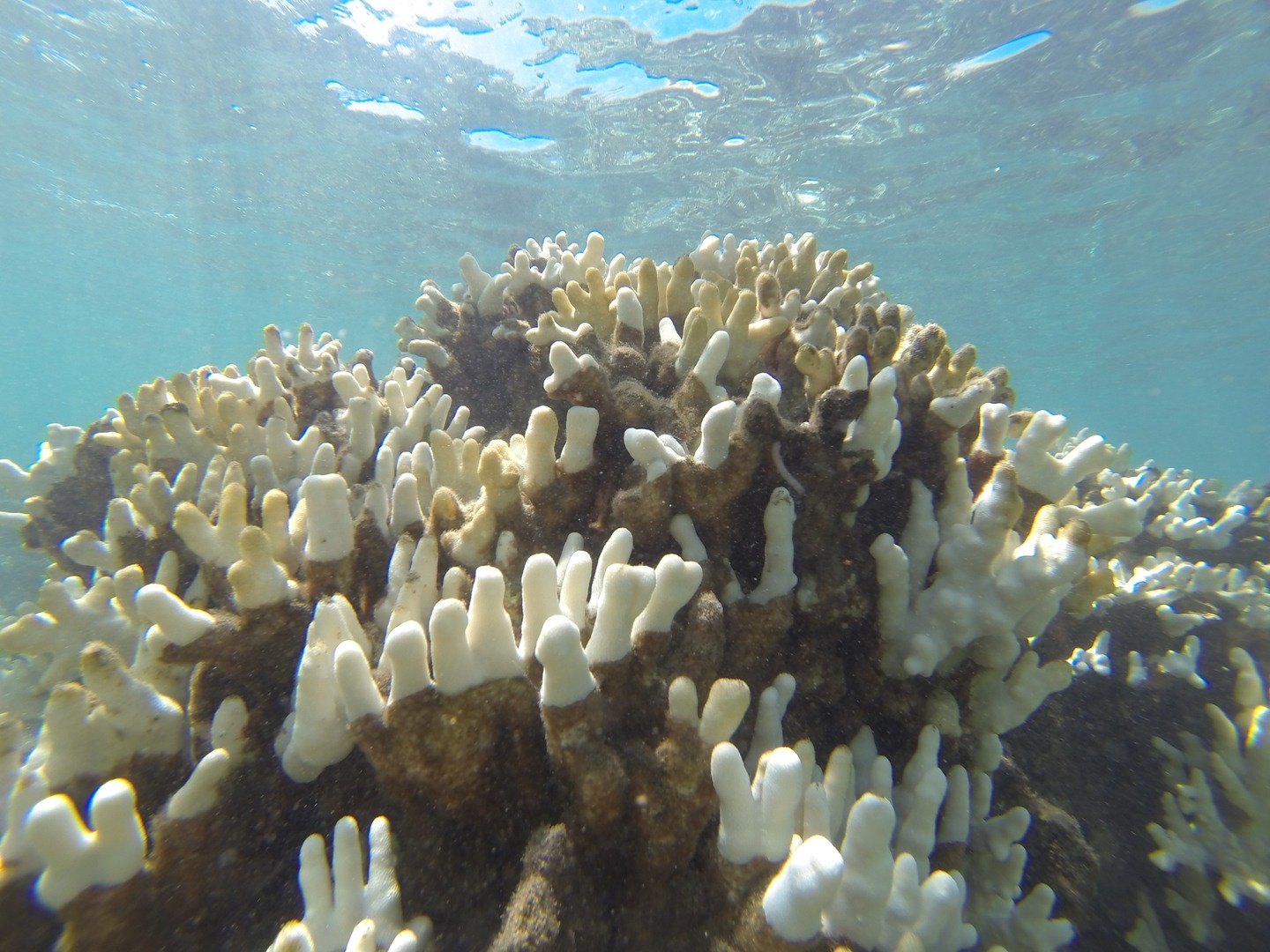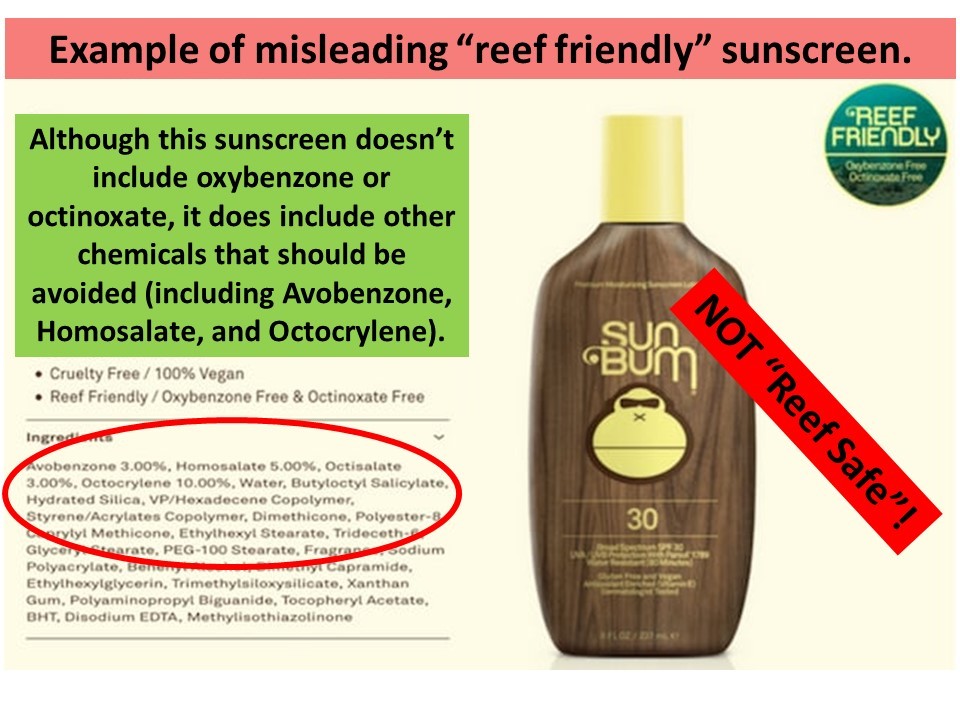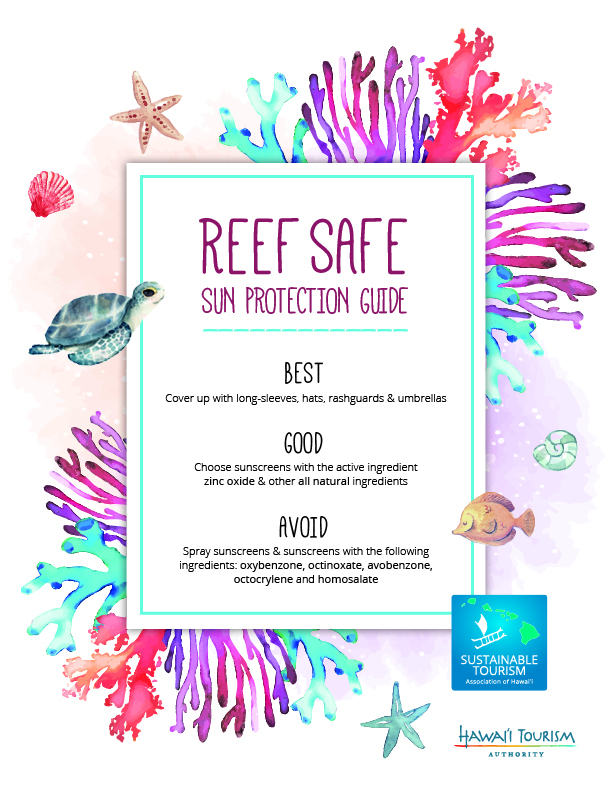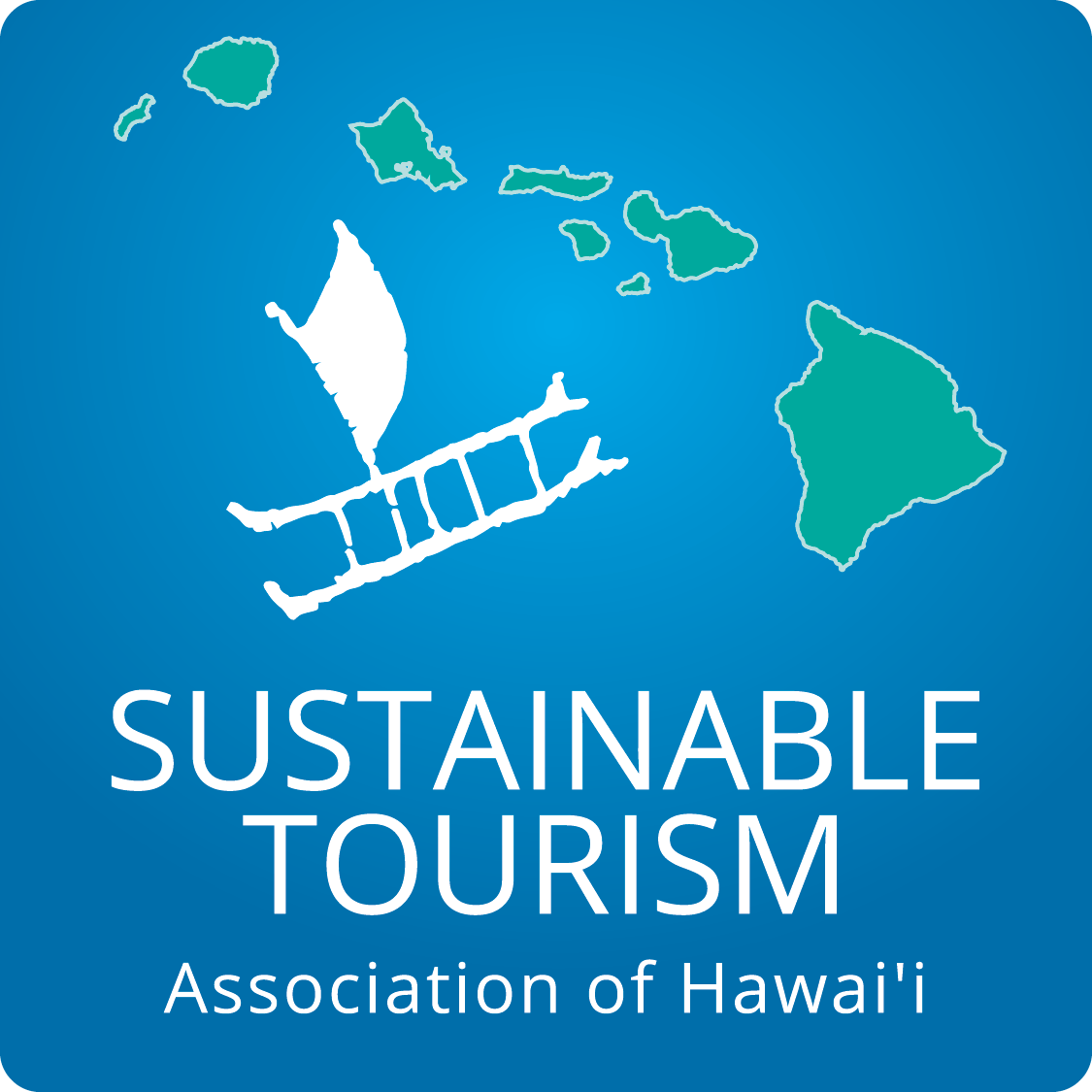Reef Safe Sun Protection
Sunscreen Basics
Sunscreens come in two primary forms:
- Mineral sunscreens utilize the active ingredient zinc oxide or a combination of zinc oxide and titanium dioxide. They work by creating a physical barrier between your skin and the sun. This means they go on thick! Zinc oxide is a naturally occurring mineral and is considered safer for you and the environment.
- Chemical sunscreens are a combination of different chemical ingredients, primarily oxybenzone, octinoxate, and avobenzone. These chemicals absorb directly into your skin and in turn absorb UV rays. By trapping the UV rays at the surface of the skin, chemical sunscreens prevent harmful rays from penetrating into deeper layers.
How Does Sunscreen Harm Corals?
Chemicals like oxybenzone and octinoxate damage coral DNA, stunt coral growth, and increase corals’ susceptibility to bleaching. Oxybenzone is particularly harmful to baby corals. When exposed to sunscreen chemicals, juvenile corals can become horribly disfigured. Combined with warming ocean temperatures, pollution, and acidification, damage caused by sunscreen means that corals are facing an uphill battle for survival. Increased stressors can lead to “coral bleaching” (see photo below), a condition which results in white coral colonies that no longer contain crucial algae.
Consumers Be Aware! Don’t be Fooled by the “Reef Safe” Label
Many sunscreen bottles are now labeled “Reef Safe,” leading consumers to think they are choosing a product safe for themselves and the reef. The label “reef safe”, however, is simply a marketing term. Sunscreens with the “reef safe” label may still contain harmful chemicals like avobenzone or homosalate. The best option for you and the reefs is to cover up. If you still need to apply sunscreen, check the label! Avoid products with avobenzone, homosalate, octocrylene, and octisalate.
The Best Reef Safe Sun Protection
Despite hundreds of sunscreen options, the best sun protection for you and the reef is to cover up with long sleeves, hats, and UV rashguards. These options create a barrier between you and the sun’s harmful rays, without the added chemicals or ingredients. If you need sunscreen, opt for brands that use only zinc oxide as the active ingredient. Though zinc oxide is commonly touted as a safer ingredient than chemical-based sunscreens, scientific studies remain limited about its potential harm to the ocean environment.
Will Switching Sunscreens Really Save our Reefs?
The ‘reef safe sunscreen’ movement has gained worldwide exposure in recent years, but some question if making the switch will really save our reefs. To ensure a future for our reefs, we first and foremost must address wide scale issues such as warming oceans, overfishing, and ocean acidification. But for an everyday beach goer, switching to a more ‘reef friendly’ sun protection option is an important first step.








